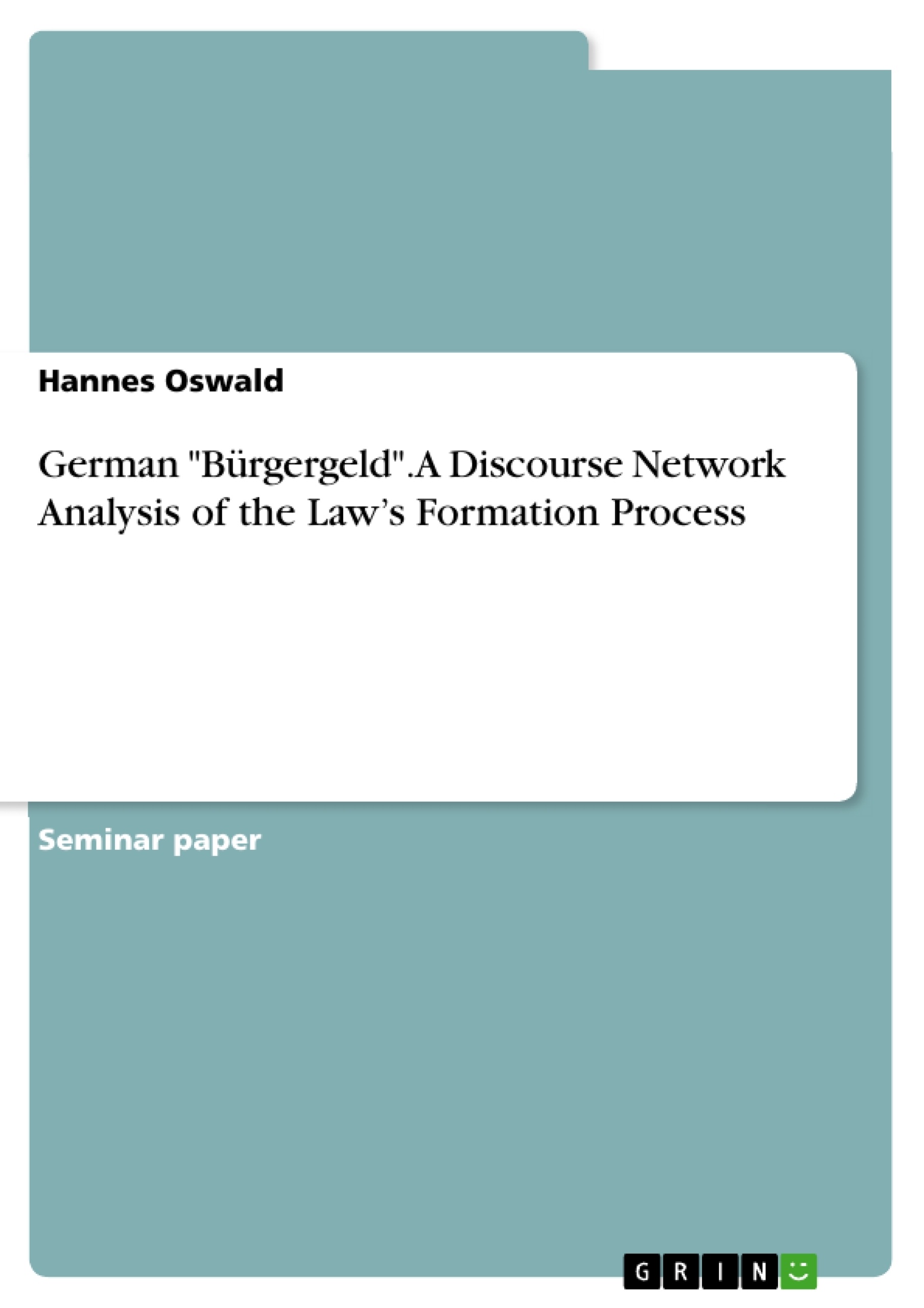This paper examines the political discourse surrounding the recently adopted reform of the German welfare state, namely the new unemployment benefit "Bürgergeld". The Citizens’ Income, which repealed the unpopular early 2000s labor law, also known as "Hartz-IV", was stipulated by the Social-Democrat led “Traffic Light” government coalition in November 2021. Approximately one year later, after negotiations with the Federal Council of Germany (Bundesrat), the new unemployment policy was passed. Although the conservative Christian Democrats (CDU/CSU) initially blocked the social program at the state level, they later agreed to its passage under toned down conditions. It is remarkable that, despite a weaker policy than the one originally proposed, there was a change of policy in favor of expanding the welfare state, while the Corona, Ukraine and inflation crises are depleting the state coffers.
In this paper, I analyze in detail the process by which the Citizen's Income came into being and show at the discursive level how the involved political actors formulated their arguments and built coalitions to achieve a favorable outcome. For this purpose, I use an innovative approach. The Discourse Network Analysis. By systematically extracting actors and statements from 60 articles in the German newspaper "Süddeutsche Zeitung", and by subsequently illustrating the competing arguments and discourse networks, I portray how political parties and ministers as well as civil society actors and associations position themselves in the public discourse.
Inhaltsverzeichnis (Table of Contents)
- Introduction
- From Hartz-IV to Bürgergeld
- Discourse Network Analysis
- Findings
Zielsetzung und Themenschwerpunkte (Objectives and Key Themes)
This paper examines the political discourse surrounding the newly adopted reform of the German welfare state, namely the new unemployment benefit Bürgergeld, through the lens of Discourse Network Analysis. The primary objective is to analyze the process by which the Bürgergeld came into being, focusing on how political actors formulated their arguments and built coalitions to achieve a favorable outcome. This analysis seeks to reveal the dynamics of the public discourse surrounding welfare state reform, including the roles of various actors, the arguments used, and the formation of discourse networks.
- The role of political actors in shaping the discourse around welfare state reform.
- The use of framing strategies to influence public perception of social programs.
- The dynamics of coalition building and the formation of discourse networks.
- The impact of external crises on welfare state reform initiatives.
- The effectiveness of institutional mediating councils in bicameral systems.
Zusammenfassung der Kapitel (Chapter Summaries)
- Introduction: This chapter provides an overview of the Bürgergeld reform, its context within the German welfare state, and the research question guiding the analysis. It highlights the significance of the reform, its historical context, and the key actors involved in the process.
- From Hartz-IV to Bürgergeld: This chapter discusses the historical context of the Hartz IV system, its strengths and weaknesses, and the reasons behind its replacement with Bürgergeld. It explores the rationale for the reform, the political motivations behind it, and the specific criticisms leveled against the Hartz IV system.
- Discourse Network Analysis: This chapter introduces the methodology used in the analysis, Discourse Network Analysis (DNA). It explains the principles behind the DNA approach, its advantages for studying policy debates, and the specific data and methods used in the research.
Schlüsselwörter (Keywords)
This research focuses on the Bürgergeld reform, welfare state transformation, Discourse Network Analysis, political discourse, framing theory, coalition building, and the impact of external crises on social policy.
Frequently Asked Questions
What is the "Bürgergeld" reform in Germany?
Bürgergeld (Citizens' Income) is a welfare state reform introduced by the "Traffic Light" coalition in 2022 to replace the previous Hartz-IV system.
What is Discourse Network Analysis (DNA)?
DNA is a methodology used to analyze how political actors formulate arguments and build coalitions within public discourse, specifically used here to study the Bürgergeld's formation.
Why was the Hartz-IV system replaced?
The system was widely unpopular and faced criticisms regarding its social adequacy and administrative pressure on the unemployed.
Which actors were involved in the Bürgergeld discourse?
Key actors included the SPD-led government, conservative Christian Democrats (CDU/CSU), and various civil society associations.
What data source was used for this research?
The study systematically extracted statements from 60 articles published in the German newspaper "Süddeutsche Zeitung".
- Quote paper
- Hannes Oswald (Author), 2023, German "Bürgergeld". A Discourse Network Analysis of the Law’s Formation Process, Munich, GRIN Verlag, https://www.hausarbeiten.de/document/1321827


